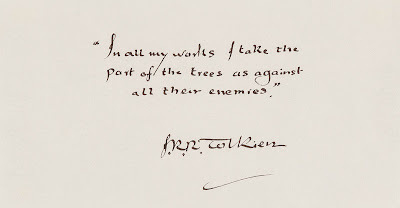2024
Recently bought at auction [CLARIFICATION: But not by me!]

Fascinating: in China, bookstore book placement as political protest.
unconditional love
I sat across from the missionary, pretending to drink a beer. I was new to beer, and it still tasted bad to me, the way it tastes to children. The second-floor boy was there, too, our shoulders touching. The missionary was talking about love again. The most important thing about God, he told us, was that he loved you unconditionally. For some reason, this startled me. It almost angered me. Who, I asked the missionary, taking a fake sip from the beer bottle, would actually want to be loved like that? All-encompassing, all-permitting love sounded indiscriminate. And what were we doing here — at our fancy school, in our charmed lives — if not learning to discriminate, to value things in and for their particulars?
“All-encompassing” and “all-permitting” are not synonyms. God doesn’t permit everything; God doesn’t approve everything; God’s discriminations are infinitely subtler than ours. He sees all your sins and names them as sins; he sees all your errors and names them as errors. He is ruthless in His exposure of your deceptions of others and your self-deceptions. He doesn’t miss anything, and he doesn’t think your poems are as good as Keats’s, or your essays as good as Joan Didion’s, unless your poems and essays actually are that good. But he loves you anyway, all the time, and all the way — just as much as He loves that person down the street, that dimwit, that asshole, that person you never want to see again. The love of God shines on the excellent and the assholes alike.
The Good News here is that if you ever stop being excellent and start becoming a dimwit or an asshole or both at once, God will see it, he will know it, he will know it better than you do, he won’t call it anything except what it is … but he will love you just as much as he did when you were excellent. Because Love doesn’t keep score.
I said grace cannot prevail until law is dead, until moralizing is out of the game. The precise phrase should be, until our fatal love affair with the law is over — until, finally and for good, our lifelong certainty that someone is keeping score has run out of steam and collapsed. As long as we leave, in our dramatizations of grace, one single hope of a moral reckoning, one possible recourse to salvation by bookkeeping, our freedom-dreading hearts will clutch it to themselves. And even if we leave none at all, we will grub for ethics that are not there rather than face the liberty to which grace calls us. Give us the parable of the Prodigal Son, for example, and we will promptly lose its point by preaching ourselves sermons on Worthy and Unworthy Confession, or on The Sin of the Elder Brother. Give us the Workers in the Vineyard, and we will concoct spurious lessons on The Duty of Contentment or The Moral Aspects of Labor Relations.
Restore to us, Preacher, the comfort of merit and demerit. Prove for us that there is at least something we can do, that we are still, at whatever dim recess of our nature, the masters of our relationships. Tell us, Prophet, that in spite of all our nights of losing, there will yet be one redeeming card of our very own to fill the inside straight we have so long and so earnestly tried to draw to. But do not preach us grace. It will not do to split the pot evenly at four A.M. and break out the Chivas Regal. We insist on being reckoned with. Give us something, anything; but spare us the indignity of this indiscriminate acceptance.
I am interested in the Texas v. New Mexico case because I am fascinated by the perennial shortage of water in the West and horrified by our persistent refusal to face the facts. I wrote an essay last year, for Raritan, on how that crisis looks from this side of the 100th meridian: here it is.
IANAL, but I am fascinated by legal arguments, and will sometimes read and annotate SCOTUS opinions, for instance, Texas v. New Mexico. N.B.: That has no intellectual value, it’s just one of the weird things I do. Any lawyer will see how little I know.
A stop-motion animation version of Susanna Clarke’s Piranesi? Yes, please. Please, please, PLEASE.
I wrote about how to be a non-infantile observer of the Supreme Court.
a numbers game
The Supreme Court of the United States has been busy this week (notes this SCOTUS-watcher, whose pinned tabs include supremecourt.gov). You hear a lot these days about a “polarized” and therefore somehow illegitimate court. A 6-3 court, we always hear, with six Republican appointees (Chief Justice Roberts, Thomas, Alito, Gorsuch, Kavanaugh, Barrett) and three Democratic appointees (Kagan, Sotomayor, Jackson). The Court has handed down nine opinions in the past two days. Let’s break down the votes, using the bold/italic formatting used above to make things clear:
JACKSON, J., delivered the opinion of the Court, in which ROBERTS, C. J., and SOTOMAYOR, KAGAN, and KAVANAUGH, JJ., joined. GORSUCH, J., filed a dissenting opinion, in which THOMAS, ALITO, and BARRETT, JJ., joined.
BARRETT, J., delivered the opinion of the Court, in which ROBERTS, C. J., and THOMAS, ALITO, and KAVANAUGH, JJ., joined. GORSUCH, J., filed an opinion concurring in the judgment. SOTOMAYOR, J., filed a dissenting opinion, in which KAGAN and JACKSON, JJ., joined.
GORSUCH, J., delivered the opinion of the Court, in which ROBERTS, C. J., and THOMAS, SOTOMAYOR, KAGAN, and BARRETT, JJ., joined. ROBERTS, C. J., and THOMAS, J., filed concurring opinions. KAVANAUGH, J., filed a dissenting opinion, in which ALITO, J., joined, and in which JACKSON, J., joined except as to Part III. JACKSON, J., filed a dissenting opinion.
KAGAN, J., delivered the opinion of the Court, in which SOTOMAYOR, KAVANAUGH, BARRETT, and JACKSON, JJ., joined, and in which THOMAS and GORSUCH, JJ., joined as to Parts I, II, and IV. THOMAS, J., and GORSUCH, J., filed opinions concurring in part. ALITO, J., filed an opinion concurring in the judgment, in which ROBERTS, C. J., joined.
ROBERTS, C. J., delivered the opinion for the Court, in which ALITO, SOTOMAYOR, KAGAN, GORSUCH, KAVANAUGH, BARRETT, and JACKSON, JJ., joined. SOTOMAYOR, J., filed a concurring opinion, in which KAGAN, J., joined. GORSUCH, J., KAVANAUGH, J., BARRETT, J., and JACKSON, J., filed concurring opinions. THOMAS, J., filed a dissenting opinion.
Per curiam decision — that is, by the whole court with no one justice writing the opinion. A rare thing, done in this case for reasons too complicated to get into here.
KAVANAUGH, J., delivered the opinion of the Court, in which ROBERTS, C. J., and SOTOMAYOR, KAGAN, and JACKSON, JJ., joined. JACKSON, J., filed a concurring opinion. BARRETT, J., filed an opinion concurring in the judgment, in which ALITO, J., joined. THOMAS, J., filed a dissenting opinion, in which GORSUCH, J., joined.
Chiaverini v. City of Napoleon:
KAGAN, J., delivered the opinion of the Court, in which ROBERTS, C. J., and SOTOMAYOR, KAVANAUGH, BARRETT, and JACKSON, JJ., joined. THOMAS, J., filed a dissenting opinion, in which ALITO, J., joined. GORSUCH, J., filed a dissenting opinion.
This is a pretty typical set of SCOTUS decisions in one major way: only one of the decisions (Munoz) follows the 6-3 split that, we are told by almost all who write about such matters, shitposters and professionals alike, simply defines the character of the court. But as Adam Feldman has written on the invaluable Empirical SCOTUS blog, “While the justices often vote across predictable lines, less predictable individual votes often get overshadowed by decision outcomes that come down as predicted.” That is, Court observers simply ignore the decisions that don’t fit their simplistic ideological frame — it’s as though such decisions don’t happen. A decision in which the dissenters include Samuel Alito and Ketanji Brown Jackson? Unimaginable! A Court in which the supposedly all-powerful right-wingers, Thomas and Alito, are the most likely to be in the minority? Inconceivable!
Sarah Isgur co-wrote that piece I just linked to, and Advisory Opinions, the podcast she hosts with David French, is consistently very good at pointing listeners to useful articles that explore some of these nuances, and usually very good at explaining those nuances directly.* Empirical SCOTUS, as I have said, is an excellent blog, and the place to start on any given issue or case is SCOTUSblog.
If you have any interest in American law, these resources are worth exploring, because they can rescue you from the sheer infantilism that characterizes almost all commentary on SCOTUS, including most of what appears in such august venues as the New York Times. Our commentators are infantile because they have only one criterion for evaluating legal decisions on any level: Did this decision give me what I want? The law doesn’t matter to them, the facts of the cases don’t matter to them, legal reasoning is completely inaccessible to them. They just want what they want, and a judge who gives it to them is Good, and a judge who doesn’t is Bad. As I say: infantile. Don’t be that way.
* Usually but not always. I have one major beef with the podcast: both hosts, but especially Isgur, use too many pronouns. I’m always hearing “it” and asking What?? Or hearing “they” and asking Who?? Isgur and French are good friends and each can often read the other’s mind, but we listeners are not so privileged — especially those of us who are not lawyers. Similarly, sometimes they’ll say of a given case “It’s pretty obvious where this one is going” — but then they don’t say where! Or they’ll say “So this one was 7-2” without saying which way it went. I think they’re assuming that their listeners are reading the opinions, or at least reading the news, before listening to their podcast, and while sometimes that’s true for me it isn’t always. I learn a lot, but I often find myself confused as I listen, and unnecessarily so. Sarah and David just need to slow down sometimes and establish the basic facts of a given case for their audiences before going on to their analysis. Isn’t that something good lawyers always do for juries and judges?
It’s Lagerstroemia season here in central Texas.

the uncanny valley of blogging
I used to call my blog Snakes & Ladders, because that reflected my belief that culture – culture-as-a-whole – is never simply ascending or declining, but is undergoing in its various locations constant ups and downs. But beneath that point is an image of myself as an observer and critic of this cultural moment. Now I call the blog The Homebound Symphony, in honor of the Traveling Symphony in Emily St. John Mandel’s novel Station Eleven, because I have stopped thinking of myself as an observer and critic and started thinking of myself as a preserver and transmitter. Another way to put this: Whereas I once tried to be a public intellectual, I now just want to be a … I dunno, maybe a convivial conservator.
There’s no money in being a conservator, no prestige either, and almost no attention. I am dramatically less visible now than I was a decade ago, or even five years ago. But for me that’s a feature, not a bug; I have consciously worked to make my audience smaller, chiefly by focusing on what interests me, especially when it interests almost no one else. (I have my number.) That focus warms my heart and gives me peace, so I’m going to keep doing it, even if nobody notices. Looking at the whole public-intellectual game now, I think: I’m way too old for that shit.
This change of focus has also led to a renewed commitment to blogging. If you’re a public intellectual, you may need to write books and essays to make arguments, and to intervene in the Discourse via social media, to change minds. If that’s your thing, then maybe you’d want to use Substack, since it pushes its writers towards (a) hosting comments and (b) engaging with readers via the comment section and Notes. But that is soooooo not my thing; by contrast, a blog is an ideal venue for what I want to do, which is preservation and transmission. It’s a great way to put ideas and images and musical compositions in meaningful relation, including creative tension, with one another. It’s an attention cottage.
What’s funny about all this is that a blog is probably the least cool way to communicate with people. It doesn’t have old-school cred or state-of-the-art shine; it falls into a kind of uncanny valley. To be a blogger is sort of like being that Japanese guy who makes paintings with Excel. But that suits me.
I’m telling you, this kind of thing wouldn’t happen if Gareth Southgate were alive. ⚽️
Owen Hargreaves, commenting for Fox, was in a lather about England’s passivity even before the Denmark goal — and rightly so. They do this every match! ⚽️
I wake up every morning with a song in my head. I never know what it’s going to be, maybe something I haven’t thought about in decades. Here’s what my brain served up this morning — which is, among other things, a reminder of the interesting stuff that musicians could do before sampling got quashed.
And then there’s too lo-fi … I don’t know what I took this with. My beloved on our honeymoon (forty-four years ago!) deserved better quality.

On Mount Seymour in North Vancouver, 2004. My old Sony Cybershot photos have a certain lo-fi charm, to me anyway.

Cathedral Grove, Vancouver Island, 2006; you almost expect to see a therapod from the Jurassic browsing in the ferns.

Grown-up Angus is a handsome fellow.

